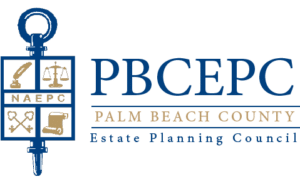
By Connie McKenzie, RN, CMC
Firstat RN Care Management Services
As we age the questions and options we face grow more complex and often can be confusing and overwhelming. Managing medical issues, financial and legal decisions, where to live and how to maintain quality of life requires thoughtful planning. The US Department of Health and Human Services Administration on Aging, estimates that 70% of people over 65 will need long term care services in their lifetime. Who will guide these decisions if you are incapable due to frailty, incapacity or disability?
As an RN Care Manager, also known as Aging Life Care Professional® (ALCP), I am often contacted by family members asking for an assessment of their loved one’s needs. Prompted by an observation of physical or cognitive decline, these are not urgent or crisis calls. These meetings provide an opportunity to discuss current care and tailor a care plan to the individual’s needs and preferences, offering a roadmap for aging in place safely. Unfortunately, the majority of the calls that we receive from families and professionals are “crisis calls.” Frequently, the family (or referring professional) is calling as their parent/client has been admitted to the hospital through the ER, discharge from hospital is imminent, or they are faced with end-of-life planning. They convey a sense of panic, they do not know how to manage from a distance and need a local professional advocate.
Professional Care Managers can intervene in an emergency, but prefer to have an anticipatory approach to the health, safety, well-being, and quality of life of elders and their families. With their expertise they will ensure that the individual has the appropriate care at home or residential community that will support their life care goals. A Care Manager can be the catalyst to help the client and family take the next step, and move forward with an informed plan. Often difficult interpersonal relationships in families come to the forefront in times of crisis; a Care Manager has the ability to work through unpleasant and sticky situations. Providing peace of mind that the right choices are made at the right time, for the right reasons, based on informed decisions is the goal.
Years ago, we were interviewed by a couple in their early 70s. They sold their estate home in Missouri and moved into a 2 bedroom condo in Miami. Their goal was to establish themselves in a new environment, travel and continue their active lifestyle. The final piece of their life care plan was to retain a professional Care Manager before they needed one! An excellent plan, one defined by this couple as, “If I step off the curb and don’t get up,” then I want the first call to be to my Care Manager! They did not want all 5 of their children boarding planes from 5 different States! The gentleman was a retired attorney who understood the risks of vulnerability with aging or a disability.
Over the last 6 years they have called us twice, due to a medical event, and successfully utilized our expertise. We update their file annually and they share any changes with their healthcare throughout the year. This is a perfect proactive life care plan for this couple and a gift for their children. They achieved their goal of having an action plan for coordination of care, customized to their individual needs and preferences. This is self-advocacy at its best; we are their coach and they are the team leader!
How does a Care Manager differ from Health Care Surrogate?
A Care Manager is a professional with specific skills, who is retained by the client through a signed contract for services. Although the Care Manager can provide recommendations to assist their client and family in making medical and life care decisions, they do not make decisions for their clients. If the client were unable to make decisions then the Care Manager would consult with the family, Power of Attorney, Health Care Surrogate, or Guardian to review the recommendations and help direct decisions based on their professional experience, insight, and expertise.
A Care Manager has been educated in various fields of human services — nursing, social work, psychology, gerontology — and trained to assess, plan, coordinate, monitor, and provide services for the elderly, individuals with disabilities, and their families. Navigating medical and life care issues is the primary function of a Care Manager. Their expertise can be summarized into 8 core knowledge areas: Health and Disability, Financial, Residential Options, Families, Local Resources, Advocacy, Legal, Crisis Intervention.
To find a Care Manager or an ALCP go to the Aging Life Care Association® at www.aginglifecare.org. This is a non-profit association that outlines Standards of Practice and Ethics for its members. ALCPs are required to be certified by the National Association of Certified Care Managers.
Connie McKenzie, RN, CMC, Director at Firstat RN Care Management Services. Connie is a nationally Certified Care Manager, Advanced Professional and serves on the Executive Board of the Aging Life Care Association ®. She developed a successful bio-psychosocial based program serving individuals with aging and disability needs.
